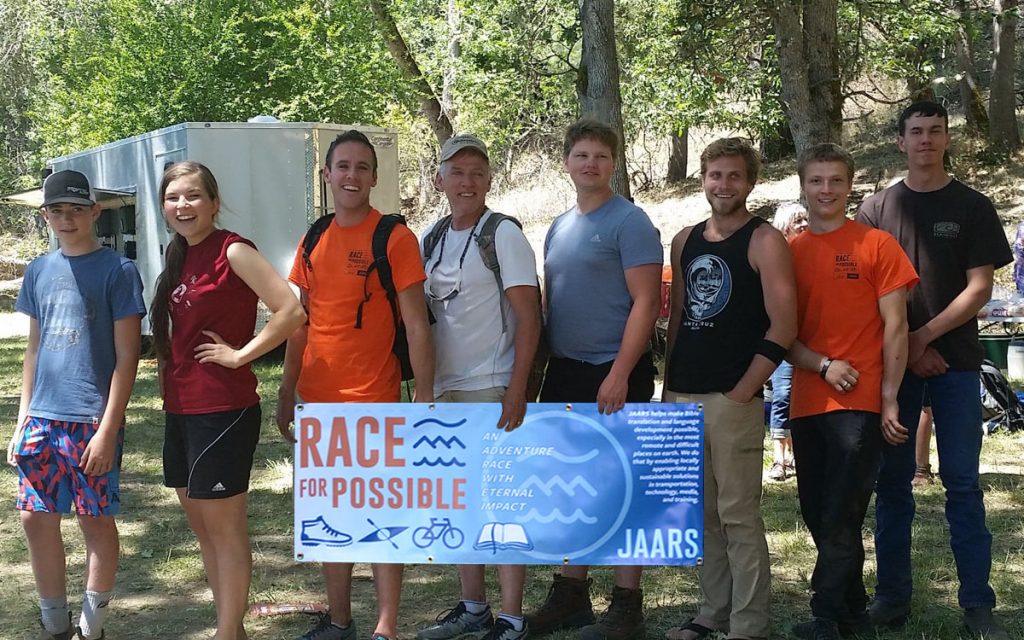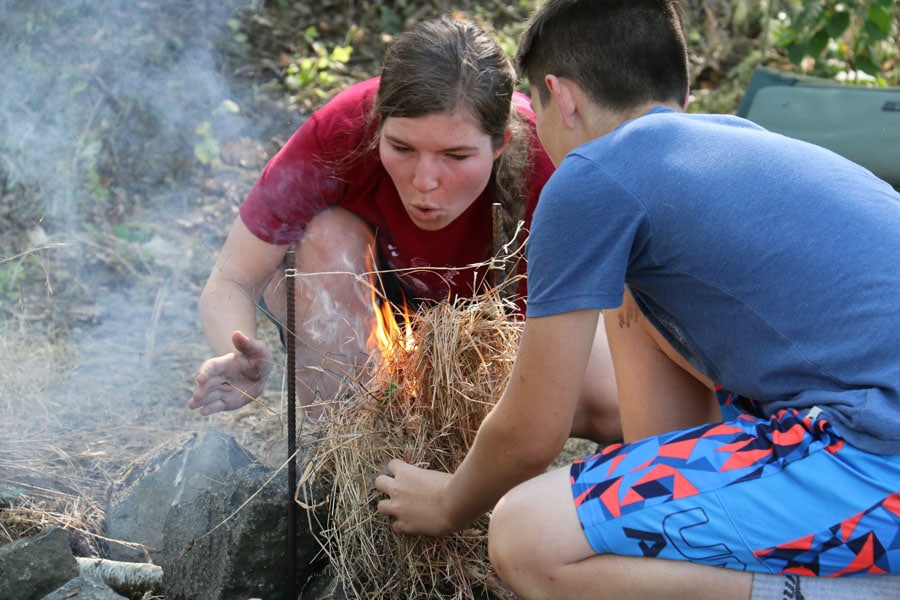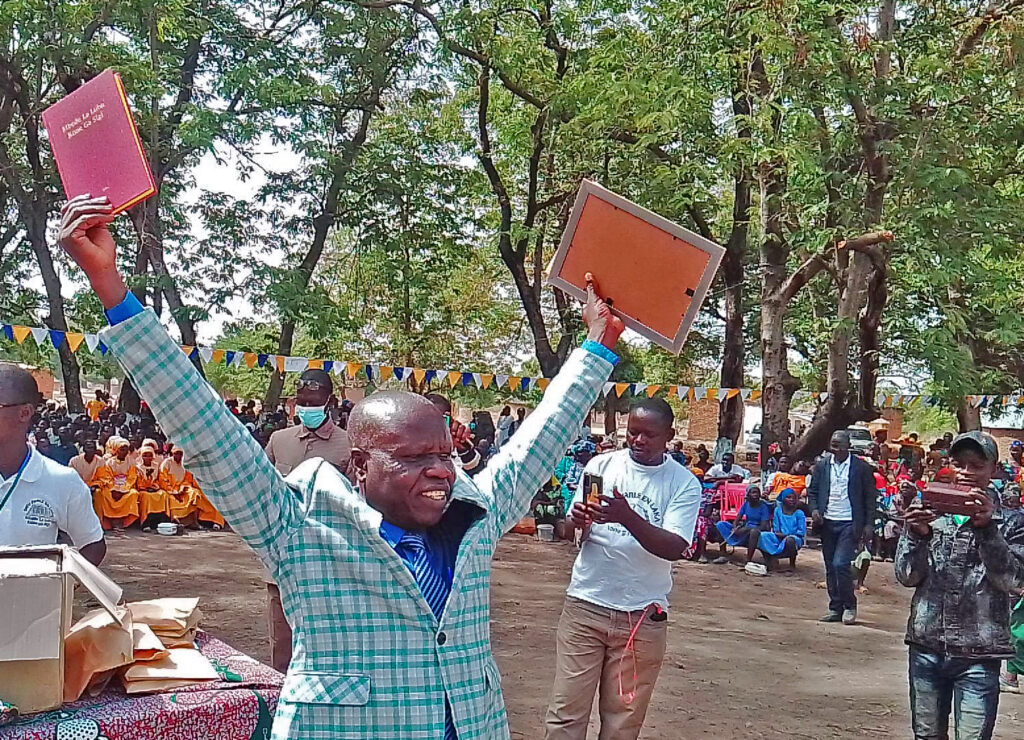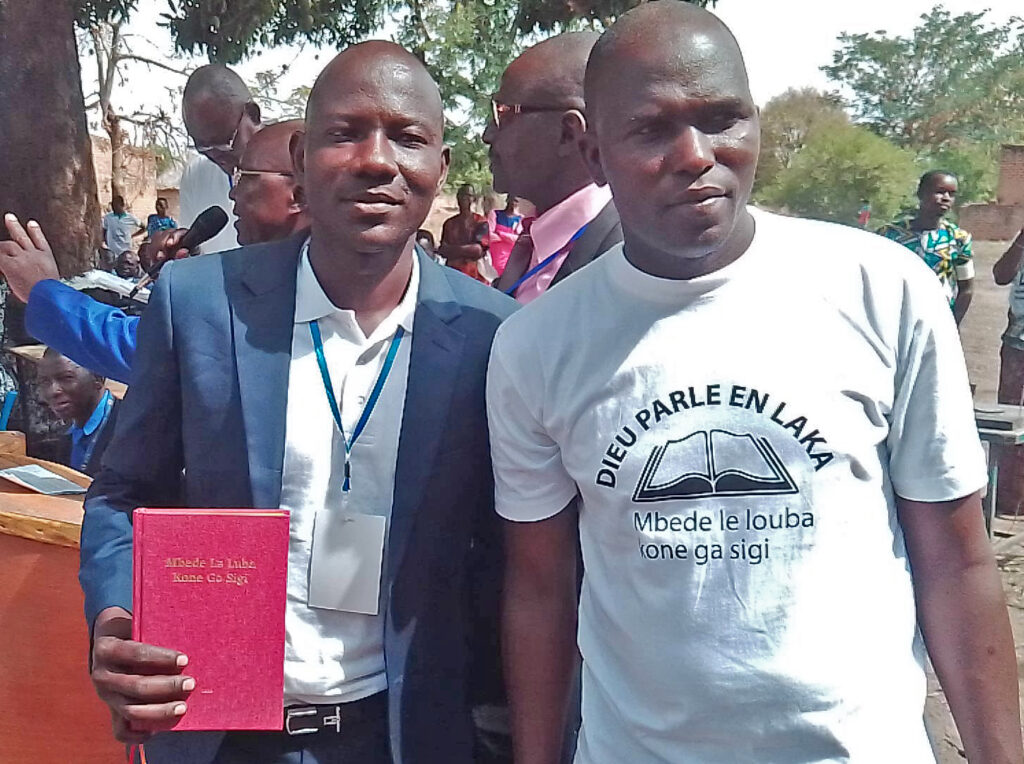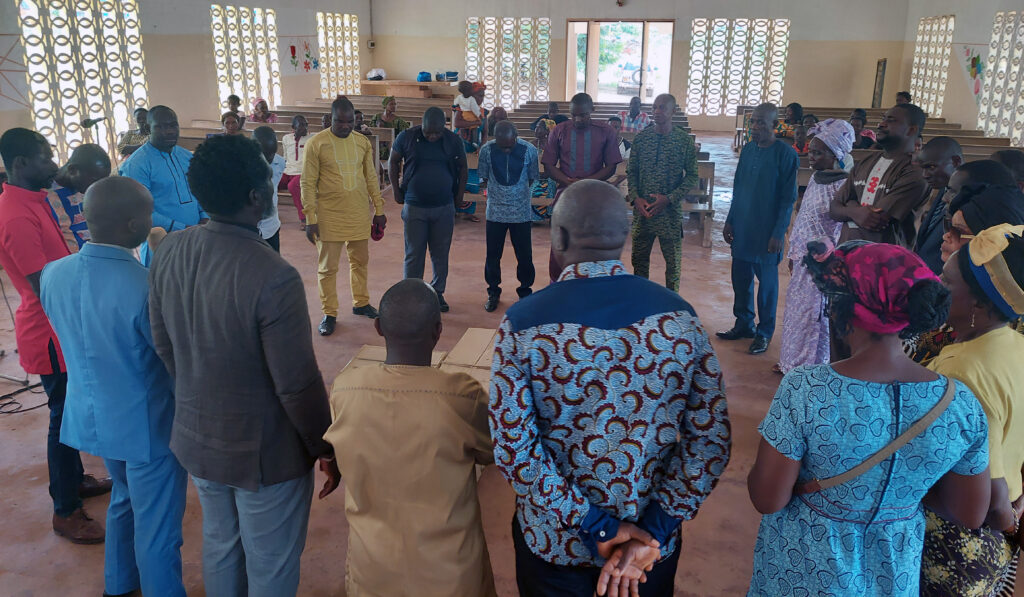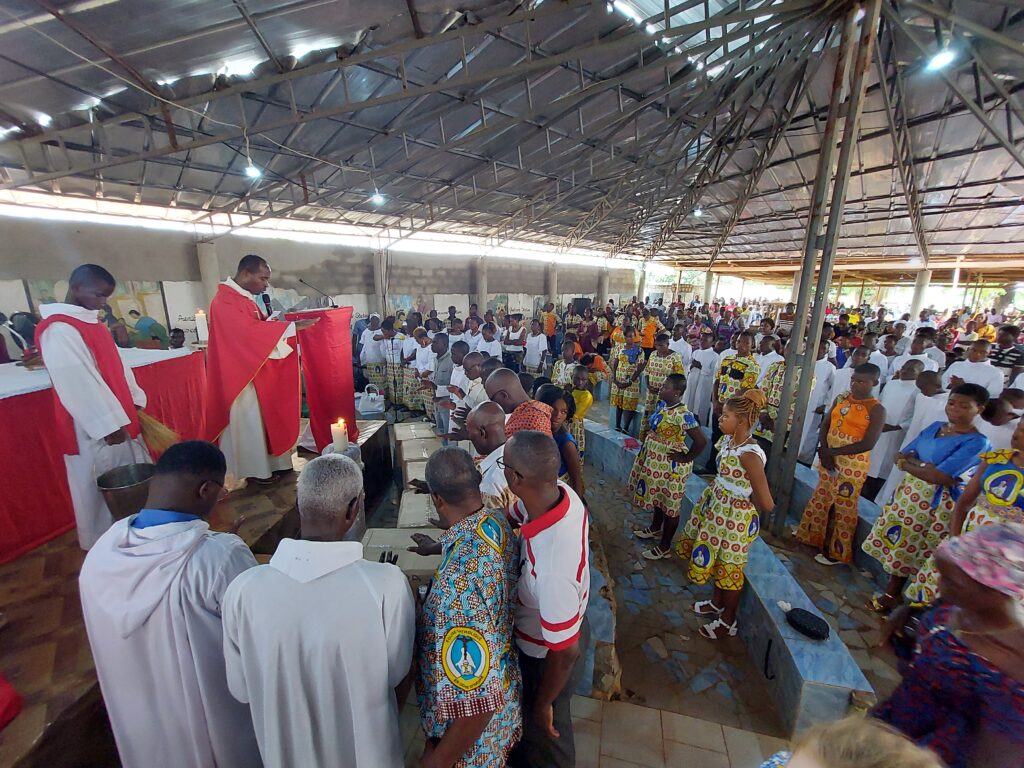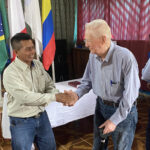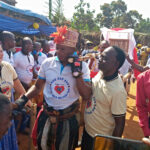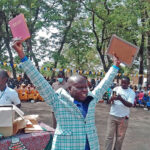Goliath-Sized Hills
Emily Gaddis pants, inhaling the scents of ponderosa pine and needle-strewn dirt as she toils up the hill, shoving her bike toward her partner, Jake, who waits at the top. “You are Goliath,” she tells the mountainous hill. “I’m David, and I will defeat you running up this hill!”
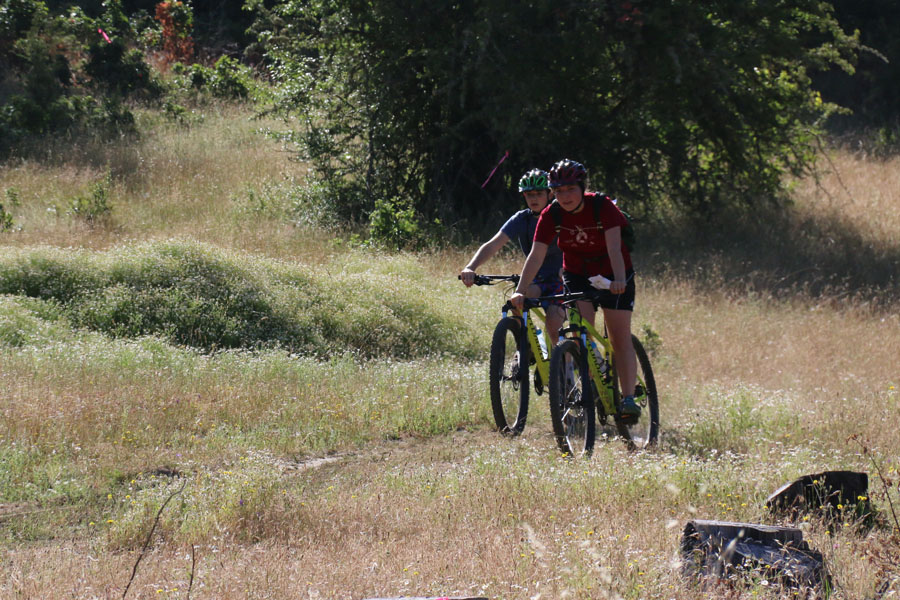
Although races make Emily anxious, she entered the JAARS-sponsored Race for Possible at Dove’s Landing Ranch in Winston, Oregon, because, “I love the idea of being able to do fun things and raise awareness for Bible translation.” She will soon head back to Africa, where she grew up, to serve as a language consultant to Bible translation teams.
Eight racers—four teams of two—participated in the one-day race, the first of its kind, as the events typically occur over two days. Ron, the oldest racer, completed his first Race in 2016 in Washington. He raced with his son who now serves in Papua New Guinea with his wife as language surveyors.
Now, at the age of 67, Ron completed the Oregon race with his other son. Ron raised the most money, about $1,870, to provide motorcycles for translators who live and work in Africa. He encouraged the other racers, “I just wrote the letters that Kris [the race coordinator] told us about and sent them out. The Lord brought in the money.” If we’re faithful to do what God promises, he’s faithful to provide.

Besides the physical challenges of mountain biking, canoeing, and rock climbing, the racers also faced linguistic challenges, such as gathering a list of words from Tamil-speaking staff. Both kinds of challenges helped the participants appreciate the roles many mission workers have overseas. “I’m not going to be a language surveyor,” Emily acknowledged, “but I now have more compassion and understanding of the physical rigors that surveyors face.” Emily noticed how some people struggled with the language-learning challenges. She believes they now have a deeper appreciation for those who will do that kind of work on the field.
After enjoying a well-earned meal, the participants listened to stories about JAARS and Bible translation. One young man who has frequently heard about the need for Bible translation, finally “got it.” During one of the presentations he leaned over to the person next to him and said, “It isn’t fair that we have so many translations when there are those that have nothing.”
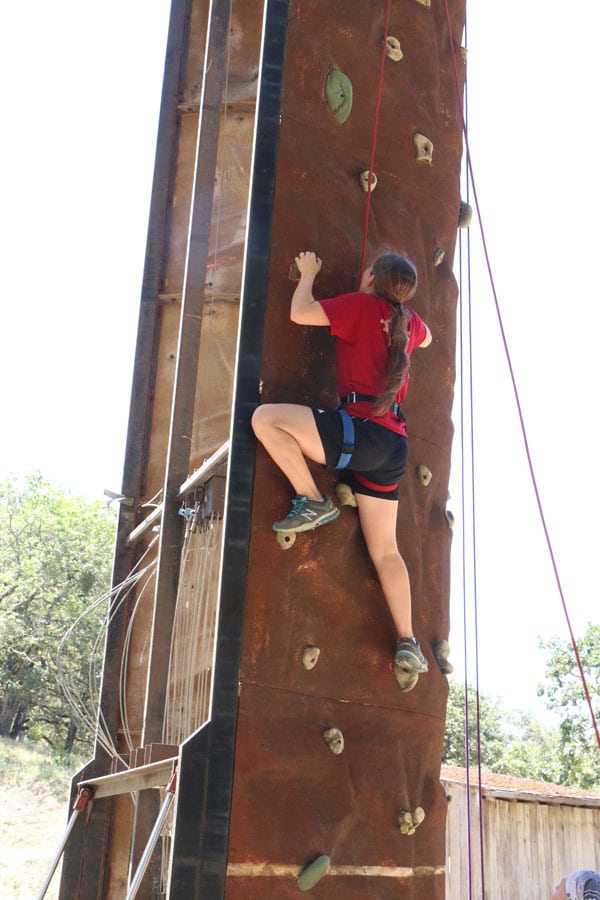
The race preparation team, staff and volunteers, encountered several Goliath-sized hills standing between the racers and the race. A winter storm in late February—a few months before the course—knocked countless trees down across the paths, so they had to clear them. When discouragement threatened, the staff continued perfecting the course.
When rain pounded, they toiled on in the downpour and mud, clearing off brush and dead branches. Even when everyone on the team got poison ivy or oak, they continued making the Race for Possible just that—possible. After hearing about these sacrifices, Emily said, “I didn’t realize how much work the race required. The staff put months and months of work into creating this course.”
The team didn’t do this for their own gain, but for God’s glory. Their passion for making the race possible impacted Emily. She recalled that one man who helped create the course said, “I get to do what I love and make a difference. I get to ride bikes and do crazy things for Jesus.”
Do you want to ride bikes and do fun, crazy things for Jesus? Even if you don’t, all kinds of people are needed at the race to make it a success! For example, at the Oregon race, ladies joyfully cooked the celebratory meal and encouraged the racers by cheering for them anytime they came into view. What hill is God asking you to conquer for his glory?
Join us in praying for more racers at the Wisconsin race Sept. 20-21 and consider participating at the Montana race in October.


